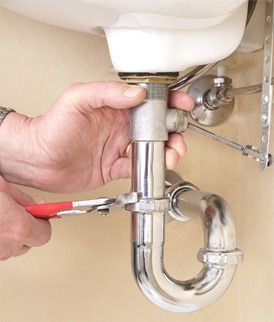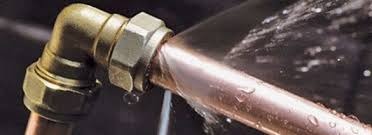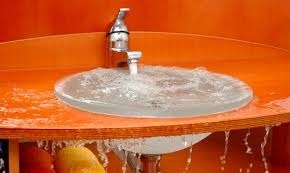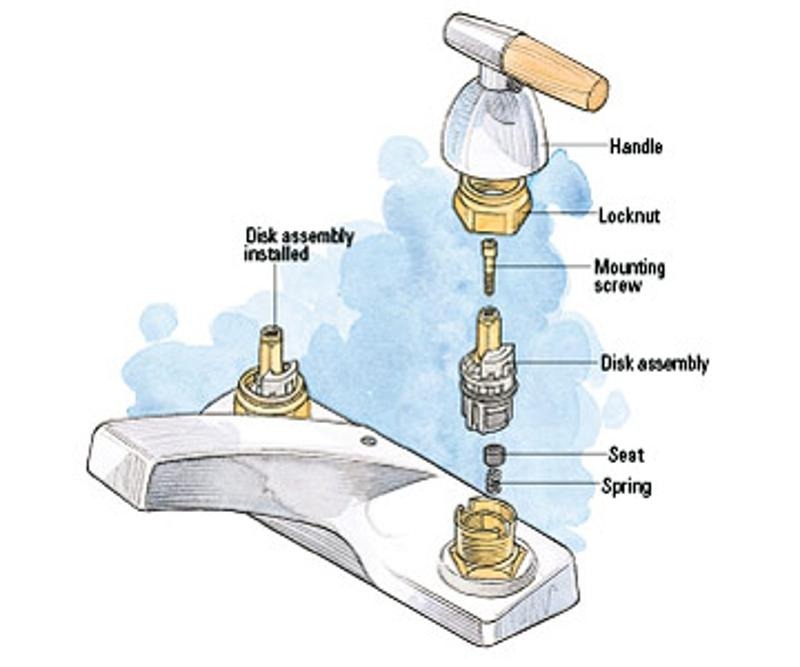3 Plumbing Tips That Help You Save Money!
With some know-how and proactivity, many common plumbing problems can be prevented, in turn, saving you money in the long run.

Some small repairs can be a small DIY job
Image - Monroeplumbingfrankfortky.com
Smart homeowners can acquire the know-how and expertise to take care of small plumbing repairs by implementing tips from trained and certified plumbers on how to repair and maintain some of the components of your plumbing system.
These tips will come in handy once you experience a minor plumbing problem in your home. But for a more extensive problem that could be due to a blockage in your main sewer line, you would need a residential drain cleaning expert to address it efficiently. A simple DIY can’t fix this kind of job since there’s so much at stake. And if you have plumbing questions, don't hesitate to reach out to your trusted plumber at any time. They’d be more than happy to help you out.

Water leakageImage - Comfortpeople.com
Plumbing Tip - Leaking Pipes or Valves
It usually takes a plumber to find the source of a leak. If a pipe is spewing, of course, it’s cracked, unless there’s a leaky joint, which you may be able to fix yourself along with faucets and other internal fixtures. If you see water but can’t see the source, call a plumber immediately. Otherwise, first turn off the water to the pipe or fixture that’s leaking. If you can see a broken seal or pipe you can try to replace this on your own. It would be desirable to take the damaged object to the hardware store to find a replacement. Then simply screw the item back on and turn on the water supply.
A leaking pipe is not something you can ignore or set aside. Every drop of water is essential, and the soonest you can attend to this, the better. If you can’t find where the leak is coming from, it would be best to shut off the main valve. Most plumbers have a 24/7 hotline. Save their contact numbers on your phone so that a simple call can fix your problem just in case you need them.
If you need more confidence in your plumbing skills, consider hiring a professional plumber to fix the leak. They’ll have the tools and expertise to diagnose and fix problems quickly and effectively. By addressing leaks promptly and efficiently, you can save money and avoid costly water damage repairs.

Keep drains clear
Image - Pioneerplumbing.biz
Plumbing Tip - Drain Blockage
Drain blockages can be a nuisance and cause water to back up in your sinks, toilets, and showers. A clogged drain in your toilet or kitchen can often be cleared using a plunger. If that doesn’t work you may have to pour down white vinegar with soap water or a chemical drain cleaner. If you can see the blockage, try to remove it with a pair of tongs or a plumber's snake. Also, pour boiling water down the drain; this can help break up and clear blockages in your pipes. You may also use a commercial drain cleaner. They can dissolve blockages, but use them with caution as they can be harsh and damaging to your pipes. For a more stubborn blockage, you have no option but to call a plumber. The traditional plunger is the first weapon of attack for a clogged drainpipe or non-flushing toilet. Pump the plunger at least 20 times before giving up.
If the plunger cannot clear the blockage, white vinegar with soap and water may do the trick. But if you have to resort to a chemical agent strictly follow the instructions on the label of the container. If everything fails resort to calling a professional plumber to fix the drainage problem.
There are many hacks to remove a toilet blockage that you can find online if you don’t have a plunger. One option is to use baking soda and vinegar, which have proven to be effective for many, according to reviews and reactions. But you must be careful with the other hacks since some don’t work. It would be best to research first and go to trusted sites for the hacks aside from clickbait posts and videos that only wanted attention.

Detailed description of the inside parts of disc faucet
Image - Pinterest.comPlumbing Tip - Faucet Repair & Installation
There are many kinds of faucets/taps on the market, to find out more about the one you have read this. As an example, if your tap is a single-handle disk faucet, it has a pair of ceramic or plastic discs, which are encased in the cylinder. When you turn the handle of the tap, the upper disc rotates. When the inlets of the upper and lower discs line up, it allows the water to flow. If the water is welling up around the handle or dripping out of the spout, you have a leaky faucet. You will need to get exact replicas of the seals and replace them. If that doesn’t stop the leak you will have to replace the entire cylinder. When installing a new faucet, follow the manufacturer's instructions carefully to ensure proper installation and optimal performance.
The entire process takes a professional plumber less than an hour and is better left to the professional plumbers listed on HomeTriangle.com!